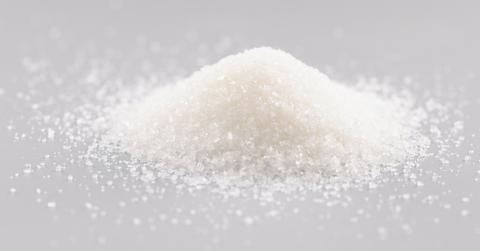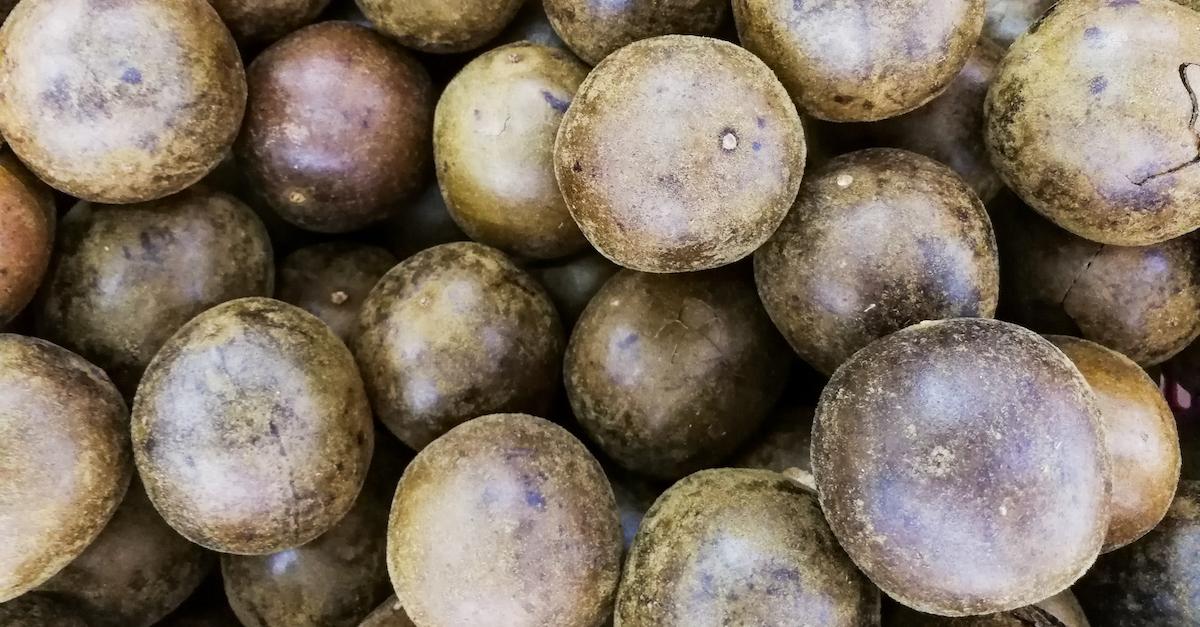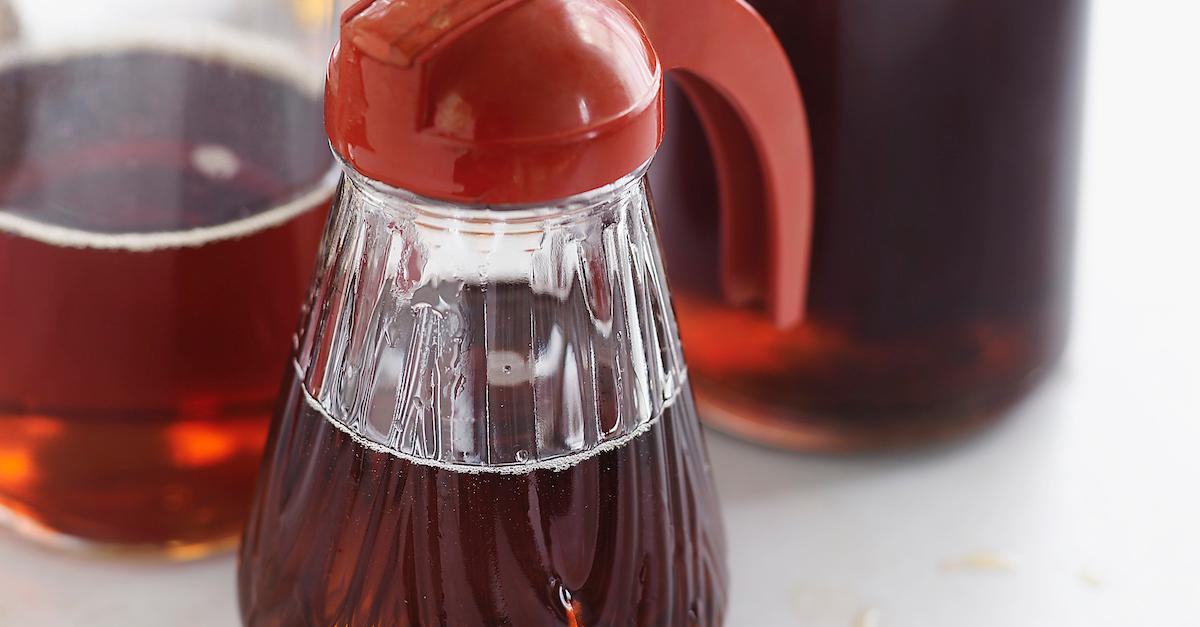These Sweeteners Don't Contain Erythritol, to Keep Your Food Sweet and Safe
Research has found that sweeteners containing erythritol can cause strokes and heart attacks — but these sweeteners don't have it.
Updated Aug. 9 2024, 11:52 a.m. ET

Lend me some sugar — but please make sure it's all natural!
Research published in February 2023 — and more research published in August 2024 — has linked a common artificial sweetener called erythritol to fatal blood clots, stroke, and even heart attacks.
According to the February 2023 study, those who are predisposed to said conditions are also twice as likely to experience them, if they are consuming erythritol en masse. The ingredient is found in a wide range of "diet-friendly" and keto food products and beverages, though you may want to opt for sweeteners without erythritol instead.
“The degree of risk was not modest,” stated Dr. Stanley Hazen in 2023 via CNN. Hazen was the lead author of the 2023 study, and serves as Cleveland Clinic Lerner Research Institute's director of the Center for Cardiovascular Diagnostics and Prevention. “If your blood level of erythritol was in the top 25 percent compared to the bottom 25 percent, there was about a two-fold higher risk for heart attack and stroke. It’s on par with the strongest of cardiac risk factors, like diabetes."
“Erythritol looks like sugar, it tastes like sugar, and you can bake with it,” Hazen continued. “It’s become the sweetheart of the food industry, an extremely popular additive to keto and other low-carb products and foods marketed to people with diabetes... Some of the diabetes-labeled foods we looked at had more erythritol than any other item by weight.”
Then, in August 2024, the Cleveland Clinic published another study on erythritol, in the medical journal Arteriosclerosis, Thrombosis and Vascular Biology. This research added to the existing body of evidence that consuming erythritol raises one's risk of cardiovascular events, such as heart attacks and strokes.
"This research raises some concerns that a standard serving of an erythritol-sweetened food or beverage may acutely stimulate a direct clot-forming effect," stated Dr. W. H. Wilson Tang, co-author of the study.
That said, here are sweeteners that don't contain erythritol.
Coconut blossom sugar

When coconut blossom nectar is vaporized, it produces coconut blossom sugar. According to Runtastic, this process ultimately preserves a number of healthy vitamins and minerals, including B vitamins, iron, zinc, potassium, calcium, and amino acids. Coconut blossom sugar also has a has a low glycemic index, but therefore, it's a less effective sweetener, so you may need to consume more of it (therefore racking up calories, if that is of concern).
Xylitol, aka birch sugar

Derived from corn cobs, Xylitol is low-calorie with a low glycemic index, according to Pediaa. It's sweet with little to no aftertaste, it reduces the risk of cavities when consumed in lieu of sugar, and it's commonly found in a wide range of fruits and woods. The only downside is its potential laxative effects, as well as its lethal effect on dogs, even in miniscule amounts.
Agave

With metabolites, vitamins and minerals, agave is a tequila plant-derived sweetener that many vegans opt for over honey. According to Runtastic, it's dissolvable in drinks (aka it's great when making cocktails or lattes), and it's actually quite tasty, somewhat resembling the taste of honey. It does have a high fructose content, though, so that's something to keep in mind if you're on a diet or if you're diabetic.
Stevia In The Raw
One sweetener that gained tremendous popularity in the last decade is the zero-calorie product, Stevia. Made from leaves of the Stevia plant, In The Raw claims that the product gets its sweetness from Stevia Leaf Extract, per HIITC. Some of the brand's products also have added flavors (that we promise doesn't include erythritol.
Monk fruit

Monk Fruit In The Raw is mainly made from the monk fruit, aka the luohan guo, according to Food Insight. Monk fruit comes from southern China, and it's often used as a sweetener on its own.
Maple syrup

According to INTEGRIS Health, maple syrup is another all-natural sweetener that has a lower glycemic index than regular sugar — a win for those watching their blood sugar levels. It's also insanely tasty and contains a wide range of vitamins and minerals, so keep eating those pancakes.
Beware: these sweeteners use erythritol.
Erythritol is found in a number of popular no- or low-calorie sweeteners that you've likely had in your lifetime. Because it's so sweet, closely resembling real sugar, it's often used as an ingredient in sweeteners, to ensure they taste like the real thing.
According to USA Today, the FDA doesn't require products to list erythritol as an ingredient — it can simply say "artificially sweetened with natural products" or "zero sugar."
Truvia
USA Today reports that erythritol is also an ingredient commonly found in the popular sweetener, Truvia. If you have it sitting in your pantry, you may want to consider opting for something else.
Splenda
According to Splenda, the company uses erythritol in some Splenda Brand Sweetener products. In total greenwashing spirit, the brand promises that the erythritol it uses is non-GMO, though that won't prevent a blood clot or heart attack. Hopefully with this new information, the brand will switch it out for a new ingredient.
Erythritol
Yes, we know it sounds obvious that erythritol contains erythritol, but you can buy pure erythritol on its own. And we'd advise against doing so.
Monk Fruit In The Raw
Even though monk fruit can be used as a sweetener on its own, some companies that produce monk fruit-based sweeteners add erythritol to make it sweeter. Monk Fruit In The Raw is a popular product that exemplifies this.
CORRECTION, Wednesday, March 1, 2023, 11:17 a.m.: A previous version of this article mistakenly claimed that Splenda used erythritol in all of its sweetener products; the brand only uses it in some products.
This article, originally published on Feb. 28, 2023, has been updated to include more research.